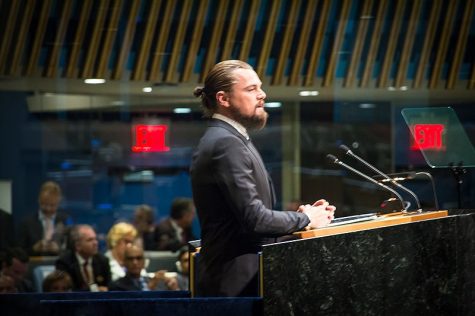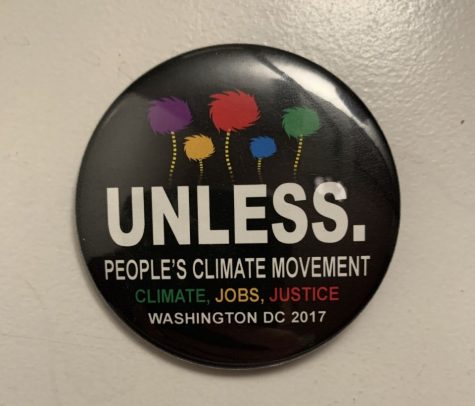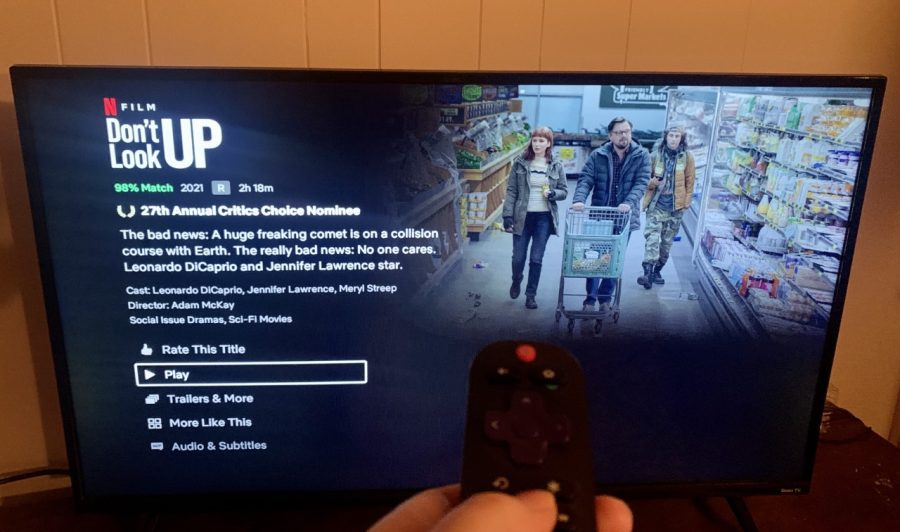“Don’t Look Up”: A Nod to Climate Change Anxiety
My takeaways from the film and its numerous messages beyond global warming
Over three weeks after its December release, “Don’t Look Up” remains in the top ten in the U.S. on Netflix.
Picture this: there’s a comet, roughly five miles in diameter, and it’s going to hit the earth. There’s a way to stop it, but the interests of politicians and corporations take priority, endangering the very existence of humanity.
This is the premise of the new Netflix original film, Don’t Look Up. In the movie’s opening scenes, we meet Kate Dibiasky (played by Jennifer Lawrence), a Ph.D. candidate at Michigan State, who discovers a comet and reports it to her professor Dr. Randall Mindy (played by Leonardo DiCaprio.) While initially excited by the discovery, the situation takes a turn for the worst when the two realize that the comet is on a collision course towards earth. If that were not enough, the lack of response from the president (played by Meryl Streep), who is more concerned with her appearance leading up to an important election, leaves Dibiasky and Mindy further disillusioned.
If this description sounds familiar, it’s because it is.
An allegory for the climate crisis, Don’t Look Up has seen massive success, quickly becoming the second most-watched Netflix original after its release in December. However, the film has received mixed reviews. One common criticism is that the satire is too obvious with its comparisons to climate change. Others argue that the comedy is not strong enough, sending a mixed message that encourages pessimistic views on solutions to the crisis.

However, the over-the-top feel of the film works because global warming is such as glaringly obvious issue, yet not enough people seem to be paying attention to it. And though the conclusion is perhaps cynical, ending with the destruction of the earth after tech company CEO Peter Isherwell (played by Mark Rylance) fails to split up the comet, the film couldn’t have ended any other way. Through its conclusion, director Adam McKay points out that a last-minute solution by tech billionaires that avoids the actual issue will not save us, whether it be comets or the climate crisis.
The relatability of Kate Dibiasky and Dr. Randall Mindy is another strength of the film, a nod to all the viewers who are concerned by global warming and the inaction of the political and financial elite. Don’t Look Up offers younger viewers a new perspective. Many kids who grew up in the twenty-first century have always been vaguely aware of climate change, but it seemed far off and far away. As this generation has grown up, this has evolved into a feeling of dread and powerlessness among them. The full scale of the issue is overwhelming. At times it does feel as if, in the words of Kate Dibiasky, “we’re all going to die!” So though the film is not exactly subtle about its allegory, it achieves what McKay sought to do: bring more attention to the climate crisis.

However, there are many other interpretations of the film. Tyler Harper, an assistant professor of environmental studies at Bates College, argues in an article for Mother Jones, that Don’t Look Up serves as more than just an allegory for climate change. Viewers can interpret the film as a critique of “renewed tension among nuclear powers, the possibility of malevolent artificial intelligence, super volcanoes of the sort lurking beneath Yellowstone, pandemics for which COVID may be a mere dress rehearsal, and of course, comets.”
Narrowing the film to only one meaning limits the power of the satire and blinds us to other issues that threaten humanity. Furthermore, the many messages the movie allow the viewer to see their own concerns and frustrations reflected by the main characters while also serving as a wake-up call for how unprepared we are for many of these issues. Though it may not be a masterpiece, Don’t Look Up has sparked many critical discussions that will hopefully translate into action on climate change.






